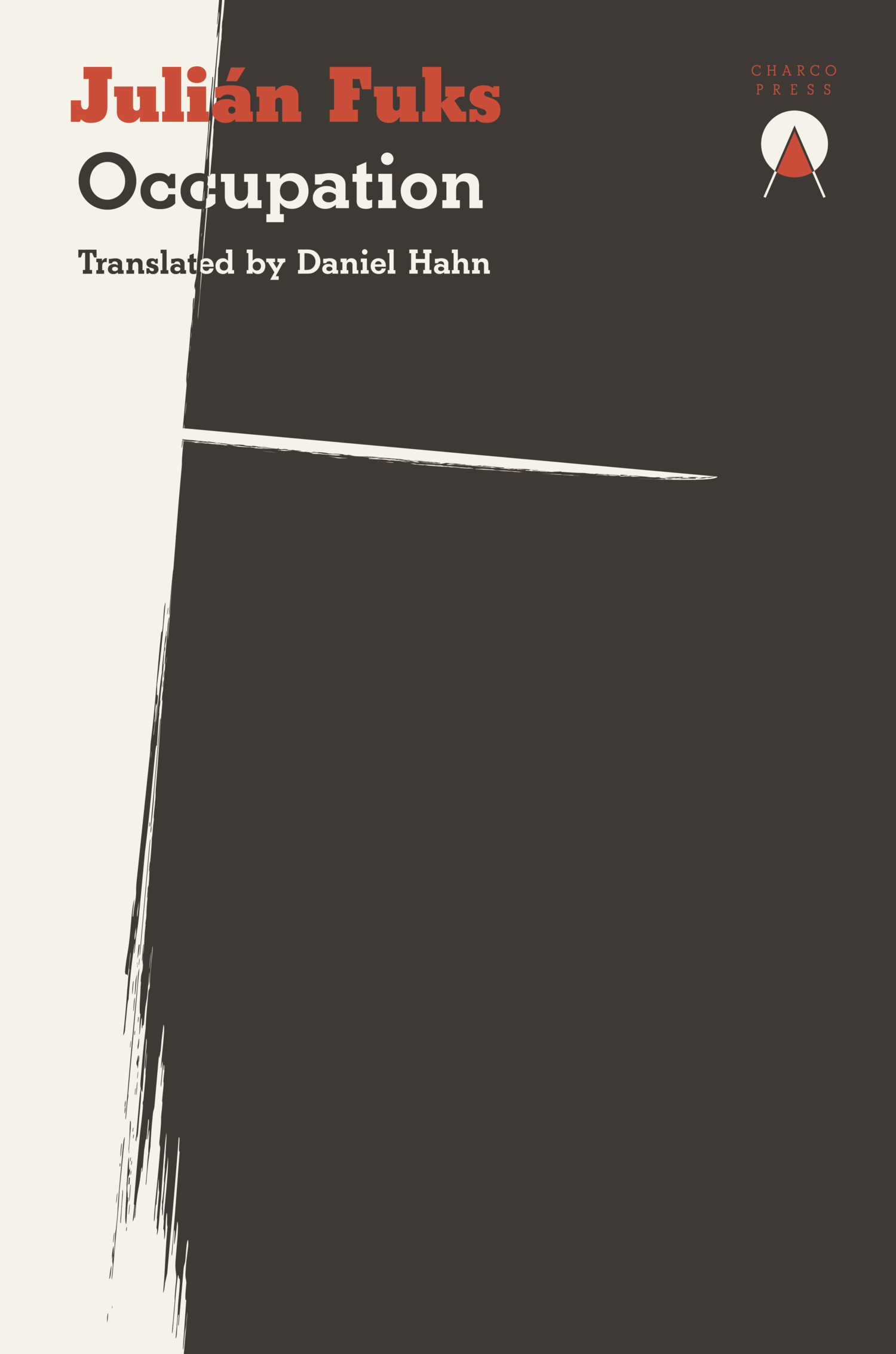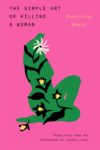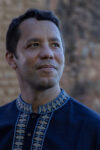
[Charco Press; 2021]
Tr. from the Portuguese by Daniel Hahn
Uma literatura ocupada, or an occupied literature, is how Brazilian novelist Julián Fuks has come to define his work. The phrase situates the author in a long tradition within his country’s fiction of writers who tackle social issues in their prose without ever losing sight of the question of language. Here, we could mention the likes of Lima Barreto, Graciliano Ramos, or even Clarice Lispector. It is far too early, however, to place Fuks alongside those heavyweights in the Brazilian literary canon. In fact, the blatant admittance of the political interest that shapes the writer’s self-imposed “occupied” label could be seen as undesirable by contemporary critics, as it likens his work to a type of “pamphlet literature” far more interested in what it has to say than how it says it.
Fuks is too skilled of a writer to fall into such a trap, however. In his breakthrough 2015 novel, Resistance, winner of some of the most important literary prizes in the Portuguese-speaking world (it placed first at Saramago and Jabuti, and second at Oceanos), the author adopted a strategy of infusing the social with the personal. Through a disconcerting and melancholic prose, the narrator, Sebastián, speaks of the Argentinian dictatorship by focusing on his family’s experience. On the one hand, there is the parents’ militancy and subsequent exile to Brazil. On the other, his adoptive brother’s feeling of displacement and the doubt that hovers over the story: is the brother one of the children who disappeared in Argentina after their biological parents were murdered by the dictatorial regime?
In his latest, Occupation, the personal is once again political as Fuks tackles the topics of immigration and homelessness. Sebastián returns here, for the third consecutive book, visiting the abandoned Cambridge Hotel in downtown São Paulo to speak to residents. The building has been taken over by the FLM, the Housing Struggle Movement, and, in his comings and goings, the narrator listens to, and later on writes down, the stories of occupants who are migrants and refugees. As such, if the abandoned luxury hotel is now occupied by poor, disenfranchised bodies, it could be said that Sebastián’s (and in turn, Julián’s) writing is occupied by their narratives.
The book is the result of a residency Fuks did in the real Cambridge Hotel occupation, and many of the characters in the story carry the names of true residents. The blurring of the lines between fact and fiction is of no surprise in Fuks’ writing as it is also present in the aforementioned Resistance. In the more recent novel, the writer not only confuses Sebastián’s biography with his own, but the last third of the work is heavy on a metaliterary discussion that undermines much of the fictional aspect of the story. An example of this is how Fuks adds in an exchange of letters between himself and Mia Couto about the book. The veteran Mozambican author was responsible for mentoring the Brazilian in the writing processof Occupation through the program Mentors & Protegé. In the story, the letter written by Sebastián/Julián has no signature, keeping with the fictional pact, but that changes radically later on when Couto’s correspondence is directly addressed to Julián.
Outside of the Cambridge Hotel plot, the book also has two other, far more personal, main narratives: the illness of the protagonist’s father and the first’s attempt to have a child with his wife. It is at the intersection of these three storylines that Fuks’ writing is the strongest. If the novelist has come to be known for his autofiction, there is an immense drive in Occupation to look upon other human experiences. In the narrative, there exists a need to open oneself to others to be occupied by them. “All I do is allow them to occupy me,” writes the narrator in his letter to Couto, “to occupy my writing: an occupied literature is what I can do at this moment.” The narrator laments that his desire to go beyond his own “petty dramas” and connect with others has been frustrated, but insists on the importance of trying — “it’s always necessary to make the attempt . . . even if it’s only to fail again, and in failure to survive.”
How do we regard the pain of others? The question that drove Susan Sontag’s famous essay is at the core of the novel, as Sebastián is often paralyzed when faced with the sight of people suffering — be it his father, his wife, his dying dog, or poor people fighting for a better life. In this inaction, however, Fuks does not rob those Sebastián looks upon of their dignity. If anything, the contrast between the narrator and those he observes shows the resilience of the latter in their pain. At some point in the narrative, Ginia, a survivor of the Haitian earthquake, asks the protagonist to “put something more than pain, something more than misfortune” in the book he would write about the residents. And that is exactly what is done here. Sebastián looks upon others’ misfortune, but the novel does not structure itself around some sense of condescending pity that spotlights people’s personal trauma. If anything, what is highlighted is the characters’ strength and will to survive. It could, in fact, be said that in Fuks’ prose occupation and resistance walk hand-in-hand.
Allysson Casais is a PhD student in Comparative Literature at Universidade Federal Fluminense, Brazil.
This post may contain affiliate links.







